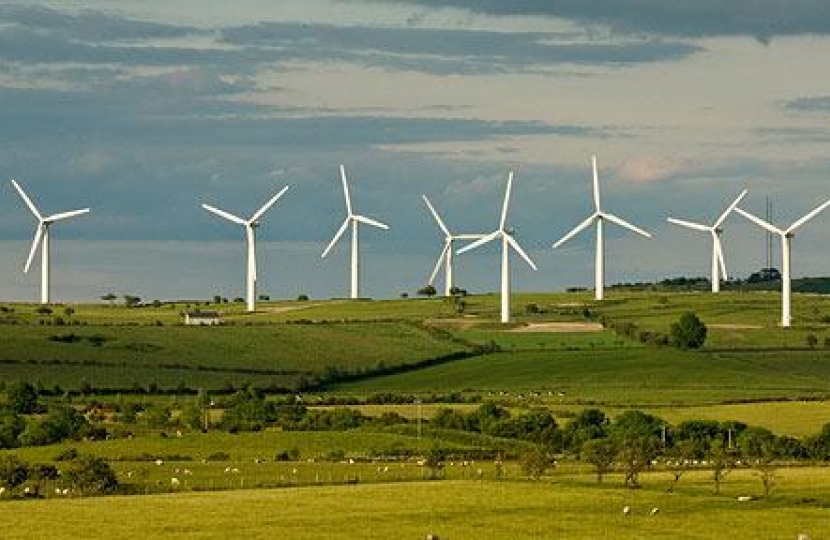
Local communities are to be given more powers to block onshore wind farms, the UK Government has announced.
Planning guidance in England will be changed to ensure local opposition can override national energy targets but the measures will also see a five-fold rise in the benefits paid by developers to communities hosting wind farms.
Montgomeryshire Assembly Member, Russell George, has welcomed the news and said it showed that UK Ministers were ‘really listening’ to communities that currently feel ‘under siege’ by the development of onshore wind farms against their will.
Mr George and local MP, Glyn Davies, met with the former Energy Minister, John Hayes MP, back in March and asked him to explore new mechanisms to ensure the views of the local planning authorities and local communities were given greater material weight in the planning decision process than they currently are. During that meeting, Mr Hayes said he was very persuaded by the argument for greater local determination based on what was happening in Mid Wales and agreed to go away and examine the ideas further, in order to set out new guidance for the Planning Inspectorate which would see local interests take a higher priority than national policy and targets.
Commenting on the announcement, Mr George said:
"I certainly welcome the news from the UK Government, as it shows that Ministers in Westminster are really listening to the concerns of communities who feel under siege from onshore wind farm being developed against their wishes.
"That’s the important factor here; if communities are united in opposition against wind farm developments, as is the situation here in Powys, then that decision should be respected by planning inspectors and by ministers.
"I’m pleased that John Hayes was true to his word and drove this policy change forward before he moved to become personal advisor to the Prime Minister.
"We of course need clarification on how this policy will affect developments in Wales that are more than 50MW, which are currently being determined by the UK Government.
"But it seems to me that the ball is now firmly in the court of the Welsh Government.
"Ministers here need to spell out clearly what they are going to do to enable local planning authorities in Wales to properly take into account local views on developments under 50MW, which will also include associated infrastructure like electric substations."
The news has come in the same week that Britain’s largest public inquiry into wind farms began in Powys and a day after the Welsh Conservative AM called on the Welsh Government to change its renewable energy policy away from technology that was ‘inefficient, costly and had no community support’.
Mr George expressed his views during a Short Adjournment Debate, which he led on the need to rebalance Welsh renewable energy policy away from the proliferation of onshore wind and towards other growth technologies like hydro power.
Commenting during the debate, Mr George said:
"I believe there has to be a fresh policy approach to renewable energy and that means adopting a policy that generates efficient, cost effective energy that has community support - not just the support of politicians and developers.
"So what should the Welsh Government be concentrating its efforts on…hydro power.
"Hydropower is one of the most cost effective means of producing clean, renewable electricity, generally with a higher efficiency, reliability and capacity factor than solar, wind and ocean energy technologies. It also has a better energy payback ratio than other power generation technologies.
"Yet issues of over regulation and a negative culture of protectionism are making potential schemes unviable in Wales and this has to change.
"If we develop more hydro power schemes, Wales has a very good opportunity to not only make a valuable contribution to the UK’s electricity generation needs but to also generate more local jobs and connect isolated areas up to the grid.
"It is therefore very important that we have a policy in place which is well placed to make sure that we make best use of this resource."
Russell George’s debate can be seen on BBC Democracy Live -
